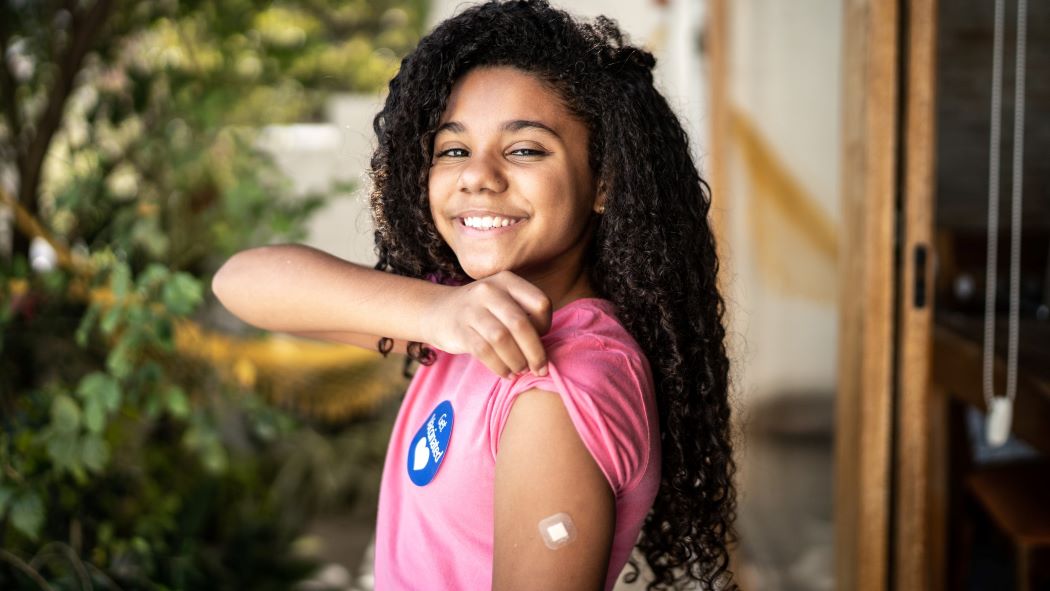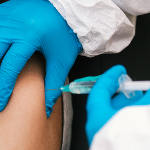Ask children what they’re afraid of, and getting a shot is often high on the list. Helping them prepare for their COVID-19 vaccines can ease the apprehension for parent and child alike.

By Stuart Lustig, M.D., national medical director for behavioral health at Evernorth, Cigna's health services business
Ask children what they’re afraid of, and getting a shot is often high on the list. Helping them prepare for their COVID-19 vaccines can ease the apprehension for parent and child alike.
The U.S. Food and Drug Administration (FDA) recently approved COVID vaccines for 5- to 11-year-olds, and health officials estimate that approval for younger children is coming early next year.
The recent authorization came as the proportion of children diagnosed with the virus is climbing. In the week ending Nov. 25, children represented 24.6% of the people in the United States who tested positive for COVID. In contrast, children have accounted for 17% of total cases since the pandemic began.
In all, more than 6.8 million children in the United States have tested positive for COVID. The availability of a COVID-19 vaccine for school-age children offers a safe, effective way to guard their health and allow their families to plan for better times ahead. As with any medical decision, however, parents should discuss the benefits and risks of the COVID-19 vaccine for their children with their pediatrician or health care provider.
Before asking your child to roll up their sleeves for a shot, you can help them conquer their fears by taking these steps:
1. Hear Them Out
Just like adults, kids have a wide range of emotions. Listen to their fears and concerns and let them know they don’t have to hide how they feel. Even if those concerns seem outlandish, treat them with respect and talk them through, giving honest answers to question like whether the shot will hurt. Use nonthreatening language when you can, such as calling the injection a “poke” rather than a shot. Over the long months of the pandemic, many children have heard the adults in their lives talk about the vaccine and getting vaccinated themselves, and they sense that emotions are high. It’s important to let kids know that their feelings matter – no matter what those feelings are.
2. Share Your Experience
Kids want to know what to expect, especially older ones who may be more in tune with the news and current events. Tell them if you were anxious before receiving your vaccine or talk about how you felt in the days following. Make sure to touch on all the positive aspects too, like the added sense of comfort and security you can feel once vaccinated.
3. Talk About Other Vaccines
Your children probably don’t remember getting vaccinated against measles, mumps, or polio when they were babies, but it may help ease their concerns if they know that they’ve already been through a similar experience. Explain to them why you chose to get them vaccinated when they were little and why getting vaccinated against COVID-19 isn’t much different. If they get an annual flu shot, you can point out how that flu shot probably has prevented them from getting really sick, just as the COVID-19 vaccine will do.
4. Celebrate This Milestone
Making the COVID-19 vaccine available for children is a big deal. While the celebration doesn’t need to be elaborate, one way to help them overcome any fears is to plan to do something special after receiving the shot, such as a favorite meal, family activity, or even planning a vacation.
5. Reach Out for Help
On the day of your child’s vaccine, ask about support in the room. For many, it can be as simple as a toy or other distraction when it’s time for the shot. Pediatricians also allow parents to do a comfort hold, where the child sits on the parent’s lap while the shot is administered.
If you notice that your child’s concerns and fears of COVID-19 or the vaccine are starting to become unmanageable, reach out to a health care professional for more help. Your child’s pediatrician may have ideas or resources or can put you in touch with a behavioral health provider.

Coronavirus (COVID-19) Resource Center
Find the latest resources, updates, and vaccine information to help you navigate COVID-19 during this time of uncertainty.